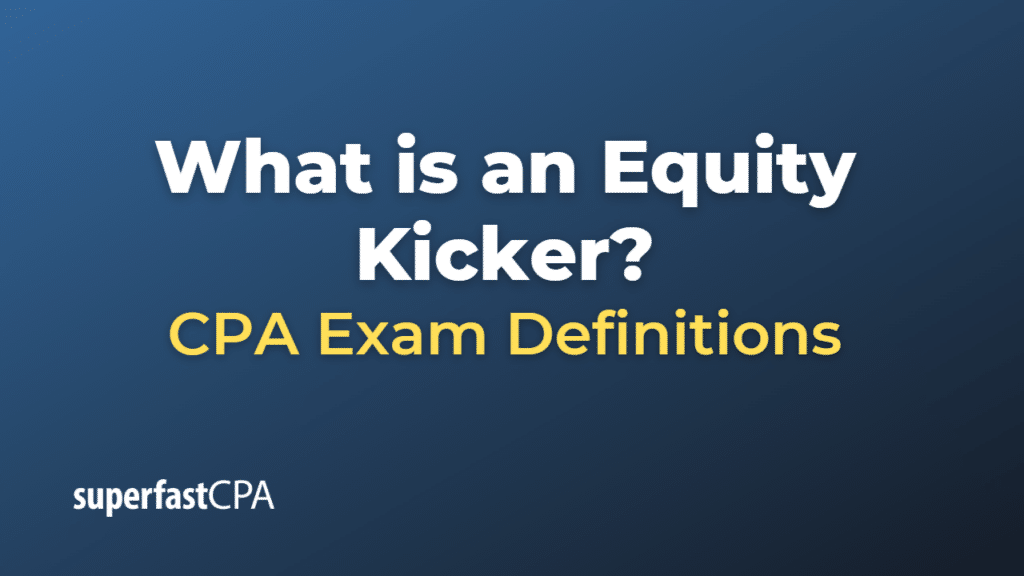Equity Kicker
An equity kicker, also known as an equity sweetener, is a financial arrangement where lenders or bondholders are given an equity position in a company as an additional return or “kicker” to the fixed interest rate. This usually involves an option to purchase shares in the company at a later date, often at a discounted price.
Equity kickers are often used as an incentive to make a loan or bond more attractive to investors. They are commonly found in mezzanine financing or other types of subordinated debt. The equity kicker provides the lender with the potential for a higher total yield on their investment if the borrower’s business is successful.
However, the downside for the company taking on this type of debt is dilution of ownership. When the equity kicker is exercised, it can result in existing shareholders owning a smaller percentage of the company.
An example of an equity kicker might be a private equity firm lending money to a business in return for a fixed interest rate and an option to purchase shares in the company at a certain price. If the company performs well and its share price rises significantly, the private equity firm can exercise its option, purchase the shares at the previously agreed price, and potentially sell them at a profit.
Example of an Equity Kicker
Suppose there is a promising startup, called GreenTech, that wants to raise $5 million to fund its expansion. However, due to the risk associated with lending to startups, traditional lenders are reluctant to lend GreenTech the full amount without some additional incentive.
A venture capital firm, VentureCap, steps in and offers to provide the necessary funds. However, to compensate for the risk, VentureCap asks for an equity kicker as part of the deal. In addition to charging interest on the loan, VentureCap negotiates the right to buy 10% of GreenTech’s equity at a pre-determined price at any time during the next five years.
GreenTech agrees to these terms and receives the $5 million loan. Over the next few years, GreenTech performs exceptionally well, and its value increases significantly.
At this point, VentureCap decides to exercise its option and purchases the 10% stake in GreenTech at the price agreed upon years earlier. Given GreenTech’s success, this stake is now worth considerably more than the purchase price, providing VentureCap with a substantial return on its investment.
This example illustrates how an equity kicker can benefit the lender. It also shows how a company might accept dilution of its equity as a trade-off for obtaining necessary financing.













